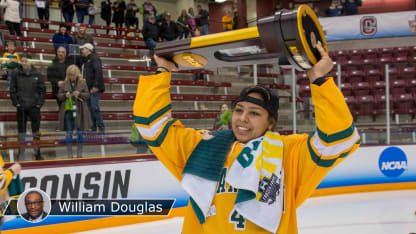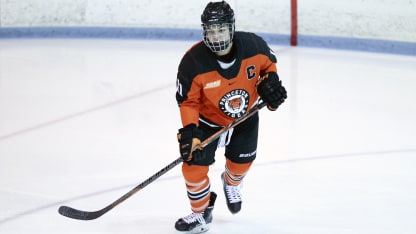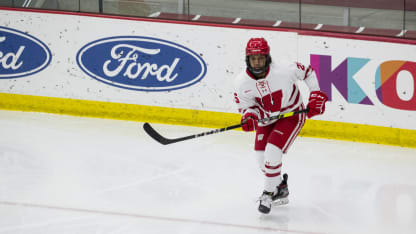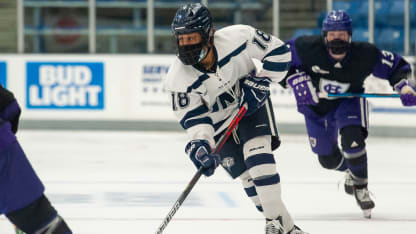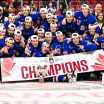Koelzer and others say they are seeing a slow but steady increase in the number of Black players in women's college hockey in the United States, fueled in part by the growth in girls hockey worldwide and a greater emphasis on making the sport more diverse, inclusive and welcoming for players of color.
There are at least 13 Black players on NCAA Division I and Division III women's hockey rosters this season, up from four in 2019 and surpassing the nine who played in 2015, according to the NCAA demographic database.
Players this season include University of Wisconsin defenseman Chayla Edwards, Clarkson University defenseman Avery Mitchell, University of New Hampshire forward Tamara Thierus, Syracuse University forward Rayla Clemons, Lindenwood University forward Jada Burke, Finlandia University defenseman India Charles, Yale University forward Kiersten Goode, Augsburg University forward Kensie Malone, State University of New York-Plattsburgh defenseman Sierra Benjamin, Nazareth College forward Maria Di Cresce, Rensselaer Polytechnic Institute forward Asiah Taylor-Waters, Lindenwood University defenseman Teagan Heaslip and Dartmouth College forward Jennifer Costa.
"The numbers are fun to see because younger girls out there, they're trying to find their role models but sometimes people have a hard time seeing themselves in others," said Thierus, a 20-year-old sophomore from St. Jerome, Quebec. "I know as a young girl I would have loved to see someone like me play at a high level. I'm happy someone can look at me and say, 'I want to be like this when I'm older.'"
Hockey traditionally has been a lonely path for young Black girls. They're most likely to be the only one or one of the few players of color on their teams, said Mitchell, a 21-year-old senior who helped Clarkson win the NCAA championship in 2018 and finished second with Canada at the 2017 IIHF Under-18 Women's World Championship.
"I definitely think it's just the matter of it not being encouraged enough and it's a sort of stereotype that hockey is more a sport for white people, which is not true," Mitchell said. "I think it's a matter of not being encouraged and not seeing representation."
That's starting to change, said Blake Bolden, a former Boston College defenseman who became the first Black player in the NWHL in 2015 and the first Black first-round draft pick in the Canadian Women's Hockey League in 2013. She calls the growing presence of Black women on college rosters "exciting and amazing."
"Girls hockey has grown tremendously over the last few years so I think it's inevitable that there would be more diversity in the game. Not tons, but it's an improvement, so that's good," said Bolden, who became the first Black female NHL pro scout when she was hired by the Los Angeles Kings in February 2020.
